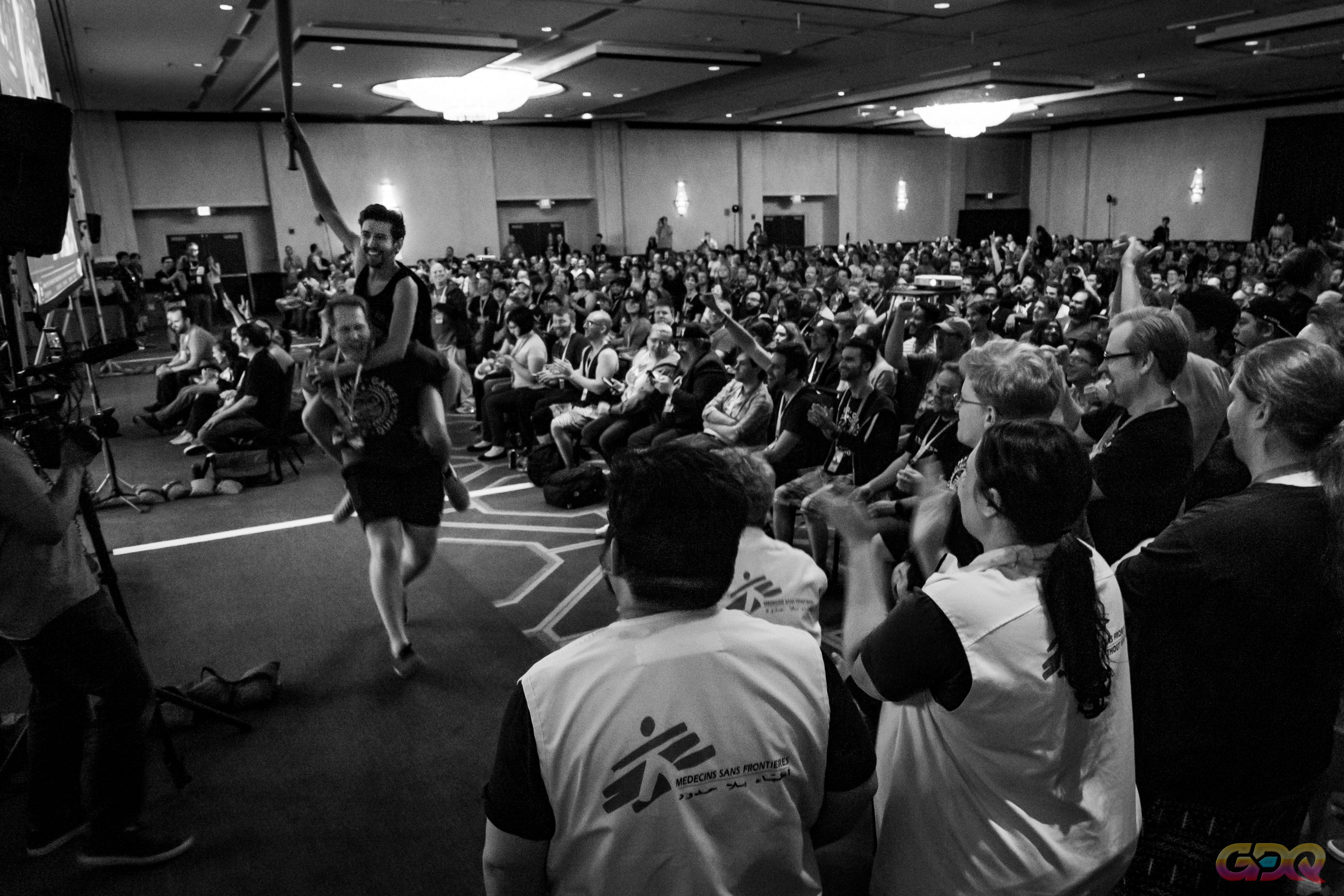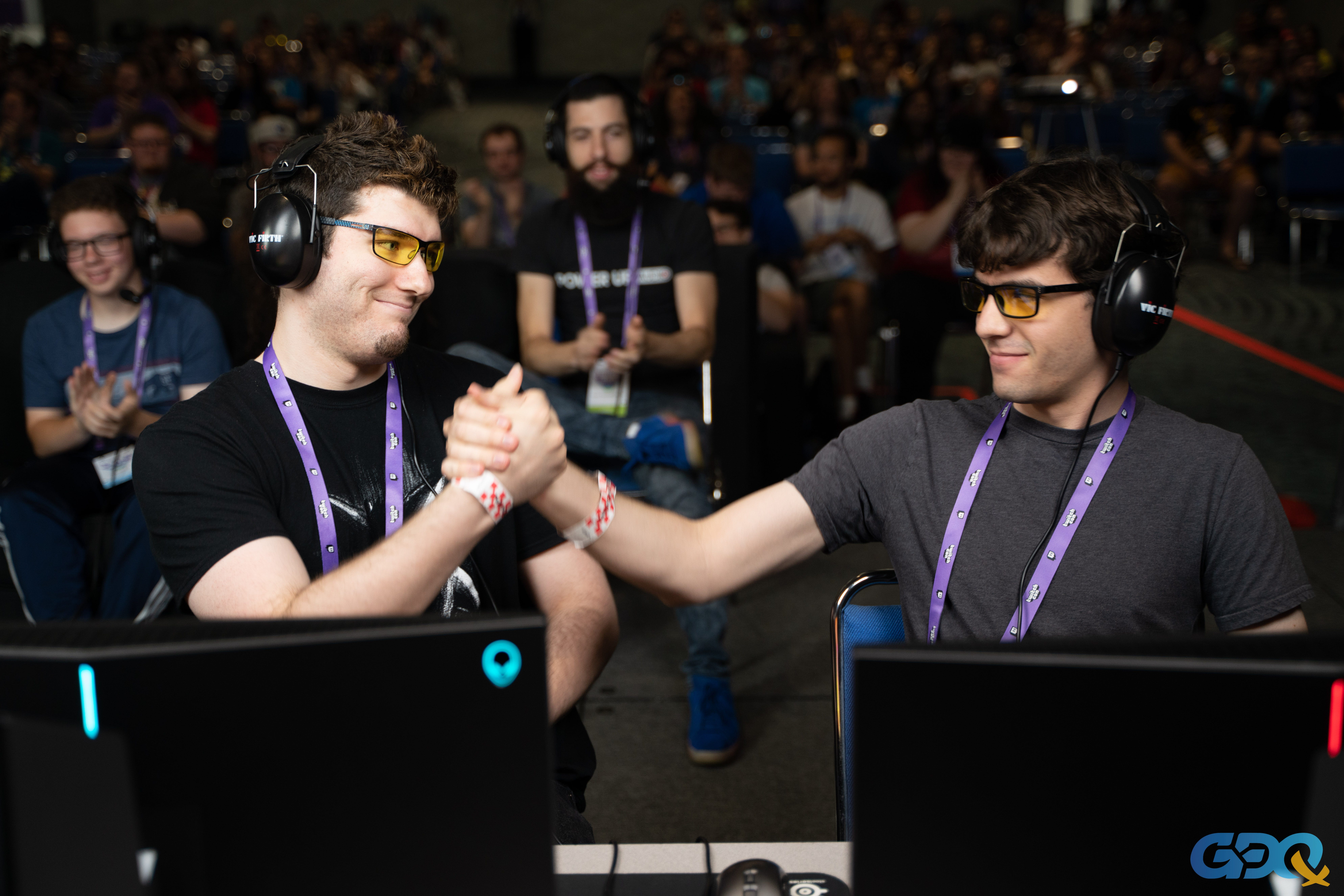What is Gaming for Good?

I don't think it's a stretch to suggest that when people think about modern video gaming, charitable fundraising isn't the first thing that springs to mind. Recreation, competition through e-sports, innovative story-telling or increasing sales figures are the more likely thoughts to arise.
And yet, slowly creeping in its momentum and capacity, 'Gaming for Good' (GfG) is becoming a compelling movement to involve communities in complete, deeply personal and holistic fundraising experiences. It's a medium of community engagement that has already made great impressions inside of existing gaming spaces, but has yet to gain significant popular attention outside those channels dominated by gamer audiences.
But what precisely is it?
Well, there are no hard and fast rules, but the community of gamers and fundraisers alike have already begun to set the precedent of what to expect from different scales of events. Sometimes it'll be a massive auditorium with a live audience watching the best of the best attempt to complete a video game known for its gruesome challenges; a particularly popular category of these events showcases 'speed-runs' in which the person playing attempts to complete the game as fast as possible, often working to beat a personal or world record attempt during the event.
Other times, it'll be one person sitting and playing on their home console raising funds through a series of self-defined challenges, like playing a series of video games for 24 consecutive hours. Either way, having fun as a community and raising money for charity are the two guiding principles.
In July 2022, the average number of concurrent viewers on Twitch at any one given time was 2.5 million people, across 8 million distinct streams during the month, totalling to a watch time of 1,892 million hours!
Where is the growth for gaming coming from?
In 2020, the value of the gaming market in the UK experienced a large jump with a valuation from £5.35bn to £7bn, with another modest 2% increase to £7.16bn by the end of 2021's fiscal year [2]. These changes have been in large part thanks to a combination of a new, well-selling generation of consoles (Xbox Series X/S and the PS5) in combination with the amount of time people were spending at home due to the COVID-19 pandemic, playing and watching video games.
And yet, gaming and charitable fundraising have been connected for much longer than this recent surge in growth, with large-scale fundraising events like the bi-annual Games Done Quick raising a total of $41 million since its inception in 2010 for various charities across the globe [3]. These vast, hybrid events most often benefit larger charitable organisations (this summer it was Médecins Sans Frontières). But, the ability for smaller-scale charities to have tangible outreach has started to gain traction due to the correlated popularity of online streaming and the ability for smaller, individual gamers to form fundraising events thanks to the outreach they can generate through their own gaming platforms/channels.

How can smaller charities benefit from Gaming for Good?
Key to the success of charities wishing to get involved in GfG initiatives is the participation and enthusiasm of gaming influencers. Naturally, the first step for any organisation is to find the right people to host these gaming events; those who share their sentiments and believe in the mission of their work. The outreach for this search can be approached in a few different ways:
Using an organisation's existing network to find gamers amongst them who would be interested in hosting or supporting a gaming fundraiser.
Searching manually across the largest platforms like Twitch, YouTube Gaming and Facebook Gaming for individual content creators who may align with a non-profit's overall mission.
Attracting interest by framing fundraising goals around an interesting campaign. Rather than contacting individual streamers one by one, organisations can instead create interest online through digital marketing and bring gamers direct to their charities, rather than the other way around. One organisation that does this to great effect is the UK-based animal welfare charity Blue Cross. For gaming fundraisers they have two distinct categories where individuals can get involved. The 1897 Challenge (the year they were founded) challenges a gamer to stream for 1,897 consecutive minutes during Spring on any game of their choice. Alternatively, their Paws 2 Play: Festive Quest challenges a gamer to pause their festive preparations and play for 24 hours consecutively. These annual events draw together audiences each year around a shared goal and reward people for their contributions, as well as make marketing their fundraising efforts that much easier when it's tied to an overarching campaign.
Now with all this new-found knowledge on Gaming for Good (hopefully) the next time you think about gaming, you'll also think about all the amazing communities that are coming together to support and raise funds for the organisations near and dear to their hearts.
